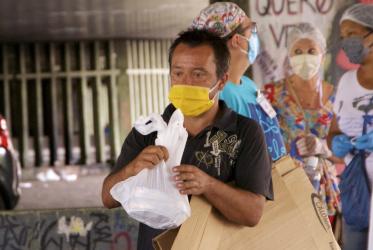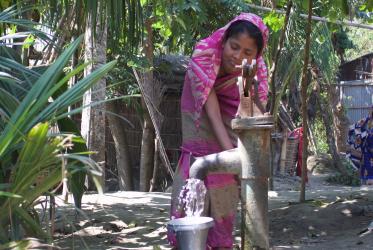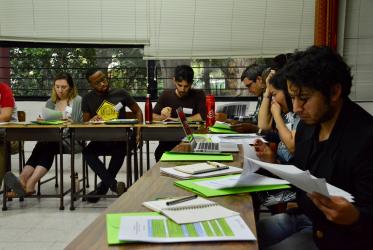Displaying 1 - 20 of 54
Eco-School promotes blue communities, green churches
19 November 2019
WCC Eco-School begins in Thailand
07 November 2019
WCC condemns massacre of farmers in Philippines
12 April 2019
El CMI condena el asesinato de campesinos en Filipinas
12 April 2019
All pilgrim routes lead to COP24
11 December 2018











